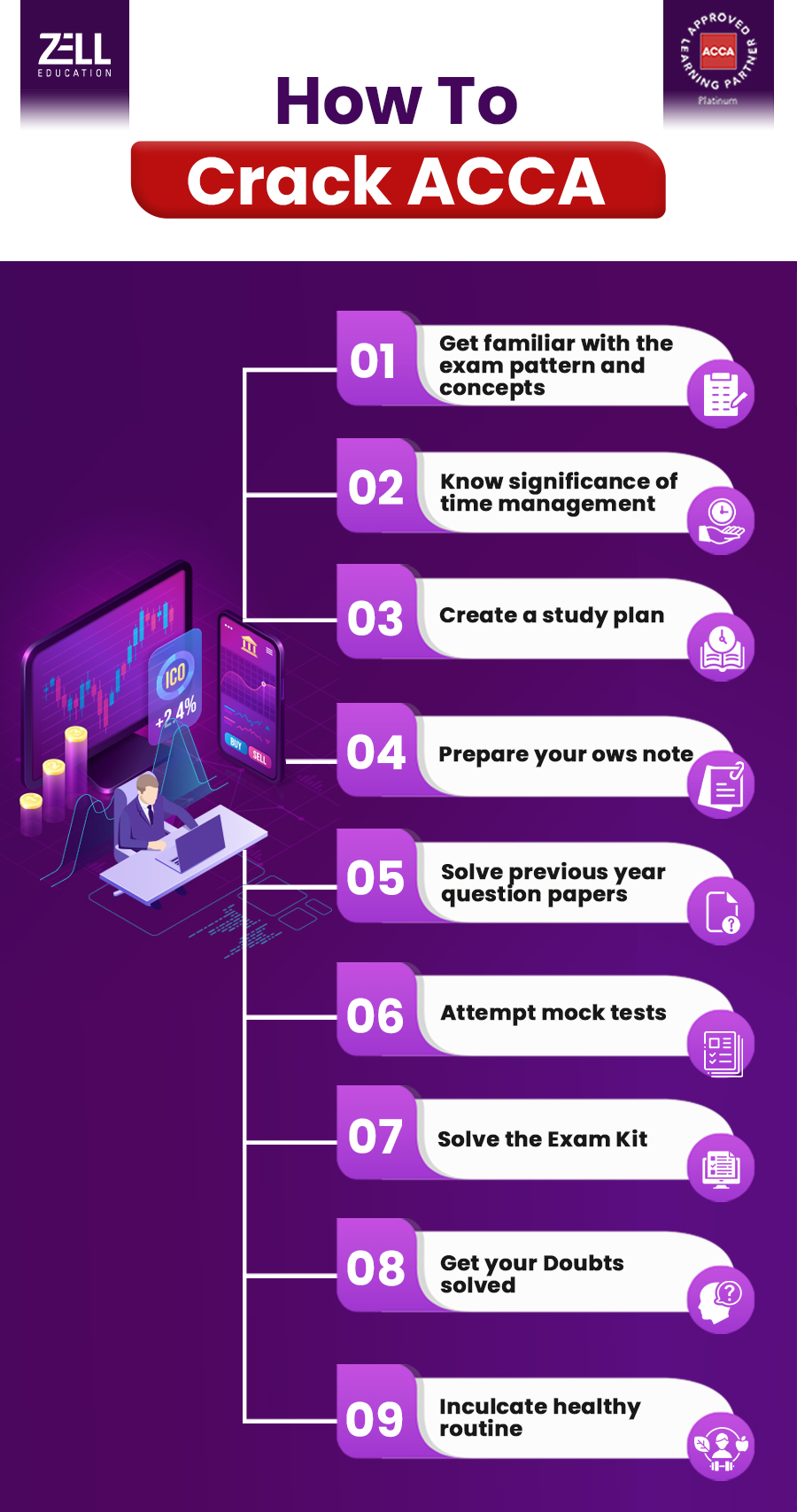Is ACCA Easy to Crack? & Pass Rate
ACCA or the Association Of Certified Chartered Accountants is a global chartered accountancy course that enables you to work as a CA in more than 180 countries. This professional course governed by the UK body is highly prestigious and in demand. The ACCA course has about three levels: knowledge, skill, and professional. When compared to the Indian CA or even US CPA Course the ACCA course is quite flexible in terms of appearing for the papers, gaining exemptions and even obtaining your mandatory work experience. The ACCA course is said to be moderately complex, however, if you’d like to know more about the difficulty level of the ACCA, here’s a detailed overview of how to become an ACCA.
What is ACCA?
ACCA or the Association of Chartered Certified Accountants is a globally recognized accounting course accepted in over 180 countries. This UK-based course can be completed in a year or two based on your learning pace or the exemptions you’ve gained. ACCA equips students with hardcore accounting concepts like taxation, auditing, strategic business reporting, financial reporting, etc. Since Chartered Accountancy concepts are taught from a global perspective, the candidate gains the right skills to become a Global Chartered Accountant.
|
Details |
ACCA |
|
Duration |
6 to 24 months |
|
Number of Papers |
15 papers |
|
Maximum Exemptions |
9 |
|
Passing Rate |
40 to 50% |
ACCA Eligibility:
Wondering what are the eligibility requirements for enrolling for ACCA ? Here’s all you need to know about.
- To be eligible to register for ACCA qualification, students should have qualified for their 10+2 examinations with an aggregate of 65% in Mathematics / Accounts and English, and a minimum of 50% in other subjects.
- Students who have just cleared their class 10 examinations, or do not qualify as per the aforementioned criteria, can still register for the ACCA course via Foundation in Accountancy (FIA) route.
ACCA Average Passing Rates For December 2021
| ACCA Qualification | Pass rate (%) |
| Applied Knowledge | |
| BT – Business & Technology | 84% |
| FA – Financial Accounting | 71% |
| MA – Management Accounting | 65% |
| Applied Skills | |
| LW – Corporate and Business Law | 83% |
| TX – Taxation | 49% |
| FR – Financial Reporting | 50% |
| PM – Performance Management | 43% |
| FM – Financial Management | 50% |
| AA – Audit and Assurance | 38% |
| Strategic Professional- Essentials | |
| SBL – Strategic Business Leader | 51% |
| SBR – Strategic Business Reporting | 48% |
| Strategic Professional – Options | |
| AAA – Advanced Audit and Assurance | 34% |
| AFM – Advanced Financial Management | 41% |
| APM – Advanced Performance Management | 32% |
| ATX – Advanced Taxation | 37% |
Looking at the passing percentage in December 2021 for all three levels, one can easily tell that the skill level and professional level of ACCA is more difficult to clear than the knowledge level. However, clearing ACCA by merely self-studying won’t get you the results you want. You’ll need a coaching institute that not only trains you to clear your ACCA examinations but also prepares you for industry challenges. Zell Education is a platinum-approved learning partner for Association Of Certified Chartered Accountants that boasts an 80% passing rate. Additionally, Zell also provides placement opportunities to all its students.
FAQ
Is it hard to crack ACCA?
ACCA as a course is moderately difficult. However, you’ll require a coaching institute for professional training and preparation for your exams.
Can average students crack ACCA?
Yes, with proper guidance, training and mock tests, average students can also crack ACCA and become global CAs.
Is ACCA stressful?
No, in fact, the ACCA course is quite flexible in terms of appearing for the papers, gaining exemptions and even obtaining your mandatory work experience.
Is it hard to clear ACCA on the first attempt?
Depending on your preparation, the ACCA exam can seem to be easy or tough.










